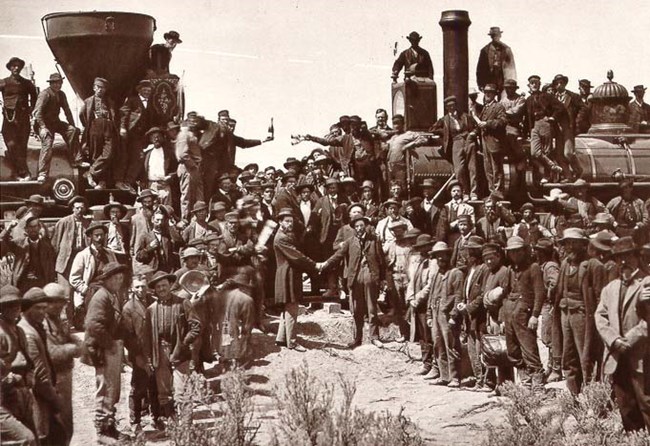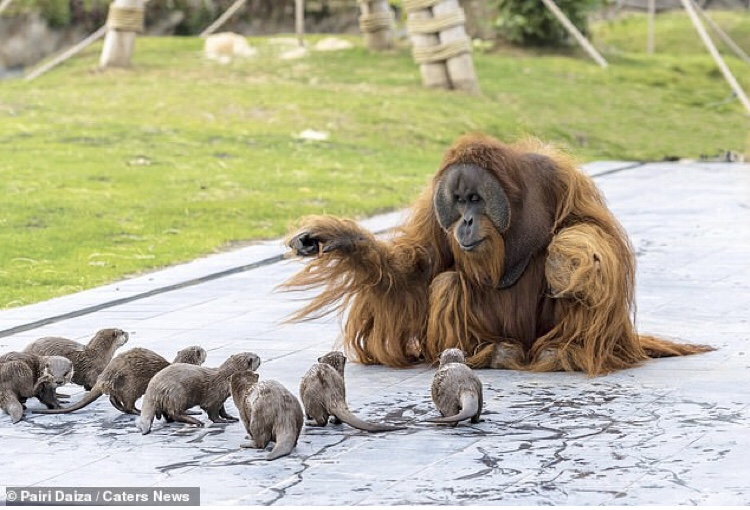(Hey Kell – You are more than welcome for those books! I’m just glad someone can make use of them. They’re not much in demand these days, for obvious reasons. Hopefully your students will get some entertainment out of them. And don’t worry that you’re depriving me of reading material; It looks like my predictions that my TBR pile will outlast me may very well be true. Now for the matter at hand; I’m happy to send a record of some of my experiences about what it was like in this area in the first half of the century for the kids to read. What were they? Somewhere between six and fourteen years old? That’s a pretty big stretch. Please accept my sincere apologies for my handwriting. My generation was one of the last to learn cursive, and surely the last to use it on a regular basis, and it’s been months since I’ve been able to find a solar cell or reworked battery or whatever you call it to charge my tablet, and printers… Don’t get me started. Hopefully you will be able to read my chicken scratch. Feel free to edit as you see fit.)
Hi, students! Your teacher, Mx Hunsaker , asked me to help you with your history lessons, because I am probably the oldest person xe knows. I’m sorry I can’t come and tell you myself, but I am, in fact, very old and it gets harder and harder to suit up in the protective gear, even if I could figure out what I’d need from day to day. Protect my skin from the sun but keep my core cool? Try to avoid frostbite? Is my rebreather still good, or do I need to find a new filter? I’m just tired too. Maybe you don’t know any people older than Mx Hunsaker. Imagine someone who looks like xer, only with white hair, and lots of wrinkles, and sometimes very cranky all the time. That’s what being old is like.
But you are not reading this to hear me rant some more. Even though it’s one of my main talents. You wanted to know what it was like in the Before Times. When I was a younger person, and dinosaurs roamed the earth. Or at least frogs.
I remember the first time I thought, “Oh no. I got here too late”
It was about a year and a half after I moved here. Everything was on fire. We were surrounded by it. There was so much fuel, you see. If the atmospheric and meteorological conditions are favorable, if the seal on your faceplate is sound, step outside of your shelter. You may, in the distance, see some vertical pole-like things. The ones that don’t have wires dangling off them are probably trees, or they were trees, once. Oregon and Washington used to be famed for their trees – rainforests, actually – they were plants that could grow for hundreds of years. Their canopies made shade, which helped other plants grow. The sheltered birds {animals that flew, and had feathers}, and bugs {crunchy animals with too many legs}, and other plants. They inhaled carbon dioxide from our air and exhaled oxygen, so that we could inhale that oxygen and exhale the carbon dioxide. And they were green. So green. Except in the Autumn – that was a season, a regular thing that happened every year, after summer (which was Hot) and before winter (when it was cold) when it was sort of in between – some kinds of trees would turn colors; red, yellow, tan, crimson, purple, the colors of flames, which may or may not be ironic (possibly just tiresome) while some trees stayed green all year. And they burned. If someone went camping and didn’t put their cook fire completely out, or threw a cigarette {small piece of paper wrapping mildly poisonous or mood altering plant matter} out of their car window (I forget how many things you may never have encountered in your life, so forgive my constant interruptions – I feel that footnotes would be altogether too distracting)… well, I’m sure you’ve seen cars and trucks. They’re like little rooms with sofas or chairs in them and a good place to take shelter from any acid storms. They used to move. Honestly! At very fast speeds, and most adults had one. Oh, I should probably explain how they moved. Most of them were able to move because of small controlled explosions that were made by igniting the remains of long-dead dinosaurs. I promise I am not making that up, although I may be a little wobbly in the details. You may have noticed that you could fit several people in these vehicles at once, but they were often used to just transport one person at a time, on freeways, back when they were still standing. The pavement was smooth – I can’t believe how much we used to complain about potholes back then! – but compared to gravel or dirt… well, I know you think I’m making this up. It does sound pretty fantastical. Huge paved ribbons, covered with personal vehicles going in the same direction, one person per dinosaur-burning pod. And fire. Yes. That’s what I was talking about. The fire was the first time I had felt in my bones that I was too late. But it was the second time we hid.
The first time we hid. That was the thing. I moved to Oregon one summer, to an apartment, which was a building with living spaces for many families. I know it may be hard to imagine now, but there was a time when we lived near lots of other people, sometimes in cities or suburbs. It was nice to be able to say “hi”, visit with your neighbors a little, pet their dogs. We knew each other’s faces, and a little of people’s lives. We’d ask how their children were doing in school – there were usually around 30 children in each classroom! Oh, but the apartment. Yes, the apartment I moved to had a cemetery {a parcel of open land reserved for the dead. Sometimes their living loved ones would visit} behind it, with a creek in between, at the time the invisible frogs {smooth green animals who like the water and hopping, and are noisy} were the loudest (no, they weren’t actually invisible – I just never saw them. Only heard). Sometimes I would stand on my balcony {a bit of the apartment that was like a small outside room, for when your living space wasn’t on the ground floor. I was about 40 feet up!} and listen to the creek as it tumbled over the rocks, and sometimes there would be a large gathering in the cemetery, with a piper and small digger. It was a nice, peaceful way to be alone, 40 feet off the ground, surrounded by reminders of life, but at a safe distance.
And there were fairs and festivals and markets in the summertime, and we visited them all – or at least it felt like it. These were activities that were held outdoors, back in the days when you didn’t have to think about whether the conditions were conducive to breathing, because they always were – unless there was too much pollen. I mean, at least you don’t have to deal with that, eh? Pollen – tiny little dust particles that were released by plants to propagate the species… reproduce. Yes – flowers could grow other flowers! And also, could make edible food grow on trees and plants! Usually helped out by bees {yellow and black flying bugs} or other bugs, but if the pollen hit the air it could also go into your sinus passages and make it hard to breathe. I’m sorry, I’m off the point again. All I’m saying is that it’s not all bad. At least you don’t spend several months of the year snuffling like a coke addict. {you can explain that or not, K. I don’t know what’s appropriate for what age anymore}
Markets. Sorry. Markets, fairs, festivals. All outdoor activities where people gathered, sometimes to buy things, sometimes to be entertained or enlightened. All in the open air. Can you imagine? This was before people had to sneak out, or count how many people they were with, or measure how far apart we were standing. Before we needed special permission to gather together. And there was food. I could write chapters and chapters on the types of food we had! When we had so much rain, and sunshine, and cool breezes that food grew in so much abundance we could feed it to animals that turned it into even more food! Maybe you have had a little meat or fish, but there was so much of it, you could eat it every day. To say nothing of cheese. But you are probably mildly alarmed at the idea of killing so many animals just because they are delicios, and you want them. And I probably also shouldn’t explain cheese to you for that matter. But you’re not here to be repulsed by what fortunate people ate so long ago, so I will go on. These outdoor, public activities lasted through the early autumn, and then we sought tickets to indoor communal activities – concerts, sporting events, theatre. I’m not sure you know about theatre? Concerts are when someone plays music or sings and other people listen. Sports – well, you know about those. Theatre was when several people would come together to tell a story. That was also magic.
We did all those things – went to eat in places where they prepared food, brought it to you, and then cleaned up after you. I sang in a chorus with nearly a hundred other people, because some things were so important they had to be sung. And I remember what would be the last vacation I took – I went to a small town in Washington and attended a festival with hundreds of other people, listening to many different people play music, some of which was hundreds of years old. To hear people take these songs, get together with others, and make music – sometimes they would invite you to dance or sing along – to know that in that moment, you and dozens of strangers were feeling the same hope, or longing, or sadness, or joy… well, it’s powerful. It makes your insides feel warm, it means for at least the space of one song, you have a connection with others, no matter how different from you. It reminds you of your shared humanity. And two weeks after I came back from that vacation, the Virus had arrived.
It had already been in other countries across the sea. We were pretty sure it was here. But in March of that year, it was decided that this Virus was scarier than any we had seen before; it killed you from the inside out. It took residence in your lungs, turned them into a rubbery thing, keeping you barely alive so that they could reproduce and spread to others. It also spread incredibly fast, through breath. A third of a chorus in Washington died of this virus, which took the breath used to sing those important words, used it as a highway to infect others. What could we do?
Lockdown. We hid. We all went into our homes, our apartments, and locked the doors. We were sent home to work, and then a week later, I was told to bring my office equipment back, because they would no longer be employing me. We stayed in our homes, leaving only for essential services, like getting groceries or buying toilet paper. And when we left our locked houses, we wore a piece of fabric or paper over our noses and mouths, because that’s where that Virus would emerge, and that’s where it would enter to fill our lungs with sludge. And when Passover and Easter came around, people started wondering if there was anything we could put on our lintel to keep the angel of death out of our houses. But we stayed hidden.
And in the summer, when we would have gone out and enjoyed the fresh air, and the music, and the food, we stayed locked up. Sometimes I would go out, but it would feel… strange. In some places you could still exchange money for goods, but only if you wore your face cover, and didn’t get within two meters. Maybe they would put your goods directly into your trunk. I could see the trees and the outside from my window, hear the frogs, even sneeze from the pollen, but it felt so different from the previous year.
Then at the end of August, when we were still hiding from the virus in our homes, the fire came. It moved fast and darkened the skies. I could smell it getting closer, and there were warnings in our county that we would need to evacuate. Now my little apartment, with the frogs and the stream, next to the cemetery, on the side of a hill called a Mountain, that had been a volcano millions of years before but was now just a little rolling mound, was only about a mile from the City, which was paved and lacked the kind of fuel in further parts of our county. But I was frightened and felt trapped by the beautiful nature and trees on the other side, so I left. I went to a hotel {a small shelter that you could stay in for a short period of time only} that was 17 miles away for two days. It would not burn there. It was still blanketed in smoke. And I was terrified that the Virus was going to get me there. It had been months since I had seen that many strangers. Was it safe? I couldn’t breathe outside anyway.
When I came home, there was a week before the smoke and ash moved. The skies were bright orange and muddy brown for five straight days. The smoke was so heavy you could not breathe outside. It seeped into the home I had been hiding in. I did not have an air purifier. So I taped up every window frame and doorjamb I could. All around the house, to keep the dangerous outside from oozing into my safe haven. I wondered: what if I suffocated in my room?
When the winds finally came back later that week, and the rain returned later that month, I saw the sun again. I was able to breathe. I took the tape down and ordered an air purifier for “next time”. I knew this was going to be only the first of many catastrophic fires. We had so much fuel. And that’s the first time I thought “I got here too late”.
And we stayed, locked in our homes for several more months. Our Christmas smaller, less festive than expected, and during that in-between time, there was a week where it snowed and rained and froze so hard all of the cars were frozen to the ground, coated in cocoons of ice. It wasn’t safe to even try to walk, so we once again stayed in our homes, hiding from the outside. Yes, I know I sound spoiled,. Talking “hiding”, as if my shelter wasn’t heated and comfortable, worried about my my dinosaur-buring personal transport pod, practically bragging about my sloth and my carelessness. I suppose you can be glad you never knew some of this, to not know what you’re missing. I envy you that.
At the beginning of the second year, the vaccines came. They couldn’t cure the Virus, but they could keep it from turning our bodily fluids into solids. And we all dutifully lined up for these, eager to go back to restaurants, and festivals, and concerts. But some of us… look, I don’t have the time or the energy to get into that because it’s not good for my blood pressure and your Mx. Hunsaker didn’t want me to swear too much. But. Then, as now, there was a certain subset of people who were angry that they couldn’t do anything they wanted anytime they wanted, no matter how much it hurt other people. In fact, if you ask me, some of those folks did stuff specifically because they knew it hurt other people, and that made them… happy? Pleased? I don’t know. Some folks are just… wrong. Bad people. Selfish. Terrible thundering shitweasels (I am sorry K, but some things can only be described accurately in English with profanity). And so while some of us were getting vaccinated and still wearing masks, other people became petri dishes for new and exciting variants of the virus. But the government said we need to get the Economy going again (the Economy was the word they used for Obscenely Wealthy People Hiding Behind Corporations Becoming Even Wealthier) and it came to pass that more restaurants started opening up again, and I got a new job, which was great, because it turns out you do have to pay rent, even in the midst of a pandemic.
So I planned a trip, just a little one over a weekend. And then, two days before that trip, I saw the weather report. It was going to be over 110 degrees for three days straight, and not getting below 85 degrees at night. I’m sure you’re giggling right now over our softness. 110 degree weather is nothing out of the ordinary for you. You can sometimes find the right gear, and you have the special dug-outs in the cool earth to keep you from burning. But I tell you, we didn’t have that; it should never have been like that – in a rainforest. That far north. That was the first time I canceled my travel plans.
How do you deal with that sort of climatic disturbance? The way we dealt with the Virus. And the fires. And the ice. We stayed in. I locked the doors. I made sure the windows were closed, I closed the blinds and did not open them for four days. I hid. I hid in my half air-conditioned apartment, and I was lucky. Air conditioning was a way that you could convert electrical power to cooling (the use of the electrical power probably heated something somewhere else up, but we were selfish and just wanted to be able to breathe) and I had a unit that was meant to cool only part of the apartment. But I ran it all four days, as I sat in the dimness, selfishly running our artificial climate control, obsessively checking the weather to see if it was safe to go outside (it was not, for four days straight) while I tried not to wonder if my creek and my trees and my frogs were still going to be there when I finally opened the blinds.
They were. And four days later, when I was able to turn off the air conditioning at night, and open the blinds in the morning again, the frogs came back – or at least, their song did. But the leaves on so many of the trees and plants were sunburnt. The grasses burned and brown, the air clear, the sun laser-focused, and I couldn’t hear the water in the creek,
And that was the second time I thought “I got here too late.”
Too late for the cool green days, the gray mist, the daily sprinkle of rain which we all pretended was a nuisance, but had so defined the pacific northwest for so long. The fogs and the gloom that made curling your hand around a mug of locally roasted pour-over so much more satisfying. The damp squish of an unexpected mudflat or moss carpet. The sheer delight of seeing the roadside lupines, the wild roses, the riotous rhododendrons make their first appearances. The friendliness of strangers emerging in the spring and summer after a chilly winter spent (sometimes) hiding inside. But it turned out those days of hiding under a blanket, sheltering from the weather, we were actually play-acting. We knew, back then, that the cold would be over, and the year would turn, and we would come out to gather again. We pretended to be shuddering in the cold, so we could enjoy the exaggerated relief when the inevitable occurred. That year it was different. When so much of your life is spend hiding inside, the catharsis seems cheap, unearned… undeserved. You stop believing that it’s ever going to change.
I’m sorry, I rushed ahead a bit. Maybe Mx Hunsaker can tell you what a Rhododendron or a lupine or pour-over was, because I just don’t have the time to describe all these things to you. That’s not true. Of course I have the time. It just hurts to remember sometimes. I am an old woman who misses a world that most people can’t even remember.
But this is your world now, and it doesn’t matter whether I miss a tea kettle or a unicorn. You can make it however you want. Keep your loved ones close. Play your games, make your music. Teach each other songs. I am sure there are wonders around you everywhere, even if they’re not the same as the trees and the food and the people I had. But fight as hard as you can to take care of each other and share what you can. When you’re busy making a new society, don’t let the selfish and the hateful and the greedy take more than they give.
Right now my hand has cramped itself into a permanent claw from writing, but there’s still enough light for me to read by. I hope you’re enjoying the books I gave to Mx Hunsaker. Many of them are Science Fiction, which concerns itself with what things might be like in the future. If you read them, try and imagine how we might get from where we are now to the future the book describes. If you would like, you can even write me a letter about what you think the future will be like. Or if you have any questions about the past, or what a rhododendron is, or about my dogs, Czernobog and Bielebog. Mx Hunsaker will be back up my way – where the Columbia meets the Willamette Wash – in a couple of months and she will bring my replies back to you. I suppose I did get here too late, but at least I got here.



 Last week I took an online Enneagram quiz. I know, I know… like the Myers-Briggs Type Inventory, the Enneagram is something I like to call “Data Driven Astrology”. It’s slightly more insightful than your average Buzzfeed quiz, but no more indicative of your personality or true nature or deepest self or whatever than the average horoscope (INFP, Leo, in case you were wondering). You get to the end and read through the fortune-cookie slip and let confirmation bias do its job. With both the Enneagram and MBTI relying on self-reported data, they’re even more loaded with confirmation bias. Even so…
Last week I took an online Enneagram quiz. I know, I know… like the Myers-Briggs Type Inventory, the Enneagram is something I like to call “Data Driven Astrology”. It’s slightly more insightful than your average Buzzfeed quiz, but no more indicative of your personality or true nature or deepest self or whatever than the average horoscope (INFP, Leo, in case you were wondering). You get to the end and read through the fortune-cookie slip and let confirmation bias do its job. With both the Enneagram and MBTI relying on self-reported data, they’re even more loaded with confirmation bias. Even so…